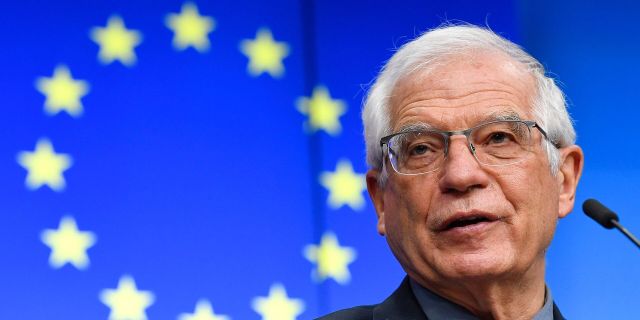This should be taken into account in the future military construction of the EU Brussels.
August 27. INTERFAX - The failures of international forces in Afghanistan and the Sahel had a sobering effect for those who participated in "stabilization interventions" abroad, EU diplomacy chief Josep Borrel wrote in his blog.
"Twenty years, a clear UN mandate, tens of thousands of international troops and more than a trillion dollars have not led to the formation of a stable and legitimate Afghan government. (...) Coincidentally, the French government announced that the last French soldier left Mali on the anniversary of the fall of Kabul (...), and here we have to admit that the trends in the region after more than a decade of international efforts are disappointing," the article published on Saturday says.
"From Somalia to Iraq or Libya, each case is different. But the prevailing impression is how complex these operations are, how resource-intensive they are, and their results are too often unsatisfactory," the EU High Representative for Foreign Affairs states.
According to Borrel, foreigners, by definition, cannot introduce and impose their own orders on countries with established traditions and their own worldview. "Foreigners can provide temporary security or engage in "capacity building," but only local residents are called upon to engage in politics and ensure the work of institutions," the head of European diplomacy believes.
"One of the main reasons is that external intervention cannot provide the main necessary components: a political settlement and a viable, legitimate government. Only local forces can do this. By their very nature, foreigners are almost inevitably seen as "strangers" who have come from outside, against whom local forces set themselves up and, in the end, resist," Borrel explains.
He sees the second reason in the ambiguity of goals and the "spread" of international missions. What began in Afghanistan as a limited operation to end the rule of the Taliban (a terrorist organization banned in the Russian Federation) has turned into a much broader and ambitious program with the creation of a government "that will make a qualitative leap and protect civil liberties."
A third reason is connected with this, Borrel notes. We need to take a closer look at the interests and motives of local players and forces. "Often the so-called 'international community' relies heavily on elites based in capitals, ideally speaking English and having received a Western education. But the real power mostly belongs to tribal groups, mayors and militia leaders," the EU's top diplomat admits. "Is all this a reason to just give up and conclude that we should just stay at home?" Borrel asks.
"No. (...) We can leave, but the consequences of this will mean increased instability, terrorism, migration, and so on. In addition, we have a fundamental human desire to help those in need by showing solidarity. Therefore, isolationism will not work either," the head of EU diplomacy believes.
He concludes that, first of all, it is necessary to "learn the lesson that crisis management is about creating space for the functioning of politics."
At the same time, all this should be considered in the context of discussions about the future of the European armed forces, Borrel believes. "The question is what type of conflicts we are preparing our armies for and what solutions follow from this in terms of position, budget, training (...). Our armies should be able to cope with both territorial defense and asymmetric warfare in more remote territories," writes the EU High Representative.

